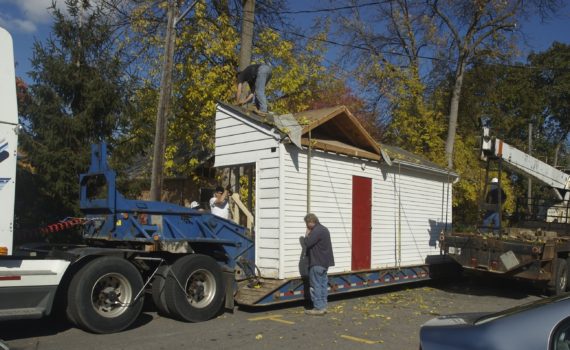
Does a Beneficiary Deed Avoid Probate in Arizona?
In Arizona, the owner of a house can deed that house to someone using a Beneficiary Deed. The good thing about it is that it’s revocable and it can avoid probate. The applicable statute is A.R.S. Section 13-405. Sounds pretty slick, right? So the question is … does a Beneficiary Deed avoid probate in Arizona?
There are three main problems that I see with using a Beneficiary Deed:
- If you name more than one beneficiary, those beneficiaries may not get along. They are taking title as tenants in common, meaning that they each own an undivided interest in the property. But what if one of the beneficiaries moves into the property and refuses to cooperate in selling it or letting the other beneficiary have use of the property. Also, do you really foresee your kids (or whoever the beneficiaries) living in that property like a big commune, along with their kids and grandkids and spouses and friends. I’ve actually seen that happen and it’s kind of crazy. Usually the only way to force all of the beneficiaries to agree to move out and sell the property is to file a legal action in civil court known as a Partition by Sale. This is sometimes called a “Forced Sale.” The rest of the beneficiaries will almost certainly be successful in forcing a sale.
- The other problem I sometimes see if naming only one family members as the beneficiary, and assuming that person will sell the house and divvy up the proceeds among the rest of the family. I’ve seen this happen more than once. The way it often happens is something like this: Mom owns the house. Mom signs a will naming son as Personal Representative (executor). The will states that everything gets divided among three kids. Mom then records a Beneficiary Deed giving the house to the son. Son decides to keep the house and tells his siblings “tough luck.” Son wins because the law is on his side.
- Some people get confused and think the Beneficiary Deed is the same as a will. They keep it safe with their important documents but never record it with the County Recorder. If the owner dies before the deed gets recorded, it is no good.
The actual way that a “forced sale” works is that the attorney prepares a Complaint for Partition. The applicable statute talks about getting three commissioners to work together and have the property surveyed. The statute was written with farm land or vacant land in mind. Obviously you can’t survey and divide a house (like the photo above). The statute is a little vague about alternatives, but it allows some wiggle room. I usually ask for a neutral third party (such as a licensed fiduciary) to be appointed. The court will order that the neutral party be appointed as a “commissioner” in order to list the house for sale and divide the proceeds. If someone is living in the house, the “commissioner” can start an eviction proceeding to remove the tenant.
Does this all sound pretty complicated? Yup. So the moral of the story is to use a Beneficiary Deed only if you are absolutely 100% sure that you want the property only going to a single beneficiary, and you name that single beneficiary on the deed. Otherwise, stay away from them. There are too many risks. Besides, there are plenty of better ways of handling an estate plan. Don’t be stingy. Hire a good lawyer (such as us) to help you. The money and time that you save your family in the long run will far outweigh the cost up front.
Have a question about this? Drop me an email at [email protected] or give us a shout at 602-443-4888.




